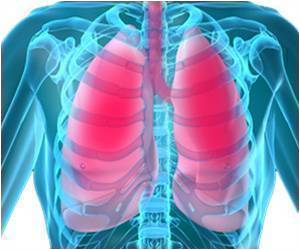A positive smoking history among donors has been associated with worse outcomes among lung transplant recipients. Smoking has several adverse effects on the lung, like permeability changes, airflow obstruction, loss of lung tissue and increased cancer risk, all of which can be reversed, to a certain extent, by quitting smoking. But, if donors with a positive history are excluded, that could mean compromising on the survival of patients who are awaiting a transplant.
Previously, lung transplantation was carried out only in a few selected patients with end-stage lung disease and the donor selection criteria were strict. Only young donors with near-perfect gas exchange who did not have other risk factors such as a history of cigarette smoking were accepted. Later, as transplantation became more common, donor selection criteria became less strict to balance supply and demand and reduce the mortality of patients on the waiting list.Researchers studied the risks associated with transplantation of lungs from donors with positive smoking histories and compared them with the effect of non-acceptance of such organs and waiting for a potential transplant from a donor with a negative smoking history.
They found that out of the 1295 lung transplantations that they studied, the 510 (39%) recipients who received lungs from donors with a positive smoking history had worse 3-year post transplantation survival than those who had received lungs from donors with negative smoking histories. Recipients of lungs from smoking donors spent more time in intensive-care units and hospitals and could derive less functional benefit from transplantation than recipients of lungs from donors with negative smoking histories. In bilateral lung-transplant recipients, the highest FEV1 (Forced Expiratory Volume) reported in the first 2 years after transplantation was lower in recipients of lungs from smoking donors than in recipients of lungs from non-smoking donors. The outcomes were worst when the donor's estimated cigarette consumption exceeded one pack per day..
On the other hand, out of the 2181 patients who were registered on the waiting list, 802 (37%) died or were removed from the list without receiving a transplant.
Although it was found that positive donor smoking history adversely affects recipient survival, the individual probability of survival is greater if they are accepted than if such patients are declined a transplant and the patient chooses to wait for a potential transplant from a donor with a negative smoking history.
If a non-smoking donor selection strategy were adopted, the donor pool would fall by roughly 40% which would increase overall mortality by compromising patient survival from waiting-list entry. The total number of life-years lost by use of lungs from donors with positive smoking histories was significantly less than the number of life-years lost if these lungs were not used at all.
Previous reports have suggested that the effect of smoking history is relevant only to the early postoperative course. The death rate from malignant disease showed no difference between recipients of lungs from donors with positive smoking histories and non-smoking donors. However, the patients were less in number to draw strong inferences.
Thus, the researchers concluded that lungs from donors with positive smoking history improves overall survival of patients registered for lung transplantation and should be continued. However, such recipients should be better informed that the use of such lungs could reduce their lifetime.
Reference: Effect of donor smoking on survival after lung transplantation: a cohort study of a prospective registry; Robert Bonser et al; The Lancet Online Publication
Source-Medindia














